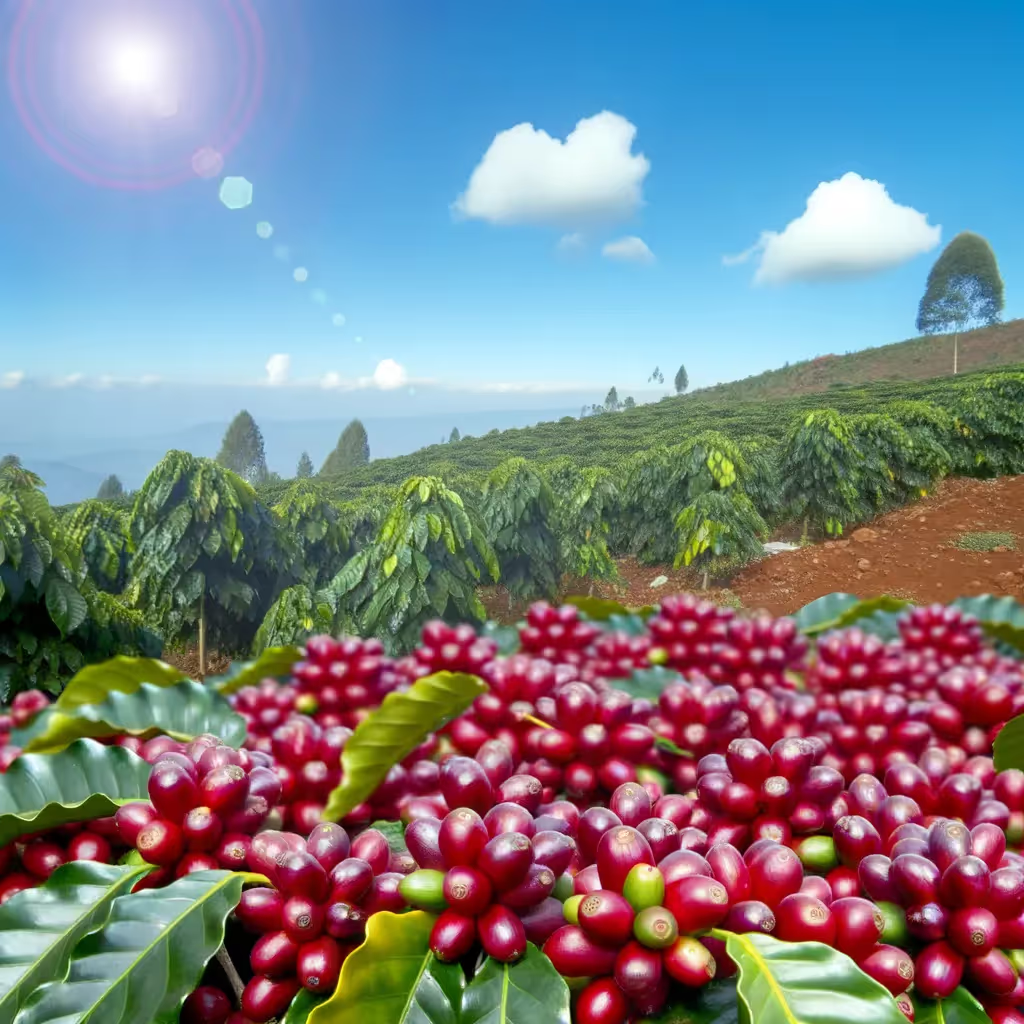Brazilian Vs. Rwandan Coffee
This comparison explores the distinct qualities of Brazilian and Rwandan coffees, highlighting their flavor profiles, growing conditions, and cultural significance in the specialty coffee world.

Brief Description
Brazilian coffee is renowned for its full-bodied, low-acidity profile with nutty and chocolatey notes. As the world's largest coffee producer, Brazil offers a diverse range of flavors, from the sweet and mild beans of Minas Gerais to the more complex and fruity notes found in coffees from Espírito Santo. The country's vast landscapes and varied microclimates contribute to the unique characteristics of Brazilian coffee, making it a favorite among coffee enthusiasts and a staple in espresso blends worldwide.
Rwandan coffee is a hidden gem in the specialty coffee world, known for its bright acidity, complex flavors, and clean cup profile. Grown in the high-altitude regions of this small East African nation, Rwandan coffee benefits from rich volcanic soils and ideal growing conditions. The country's tumultuous history has given way to a thriving coffee industry, with smallholder farmers producing some of the most sought-after beans in Africa. Rwandan coffee is characterized by its tea-like body, citrus notes, and often floral or fruity undertones, making it a favorite among coffee enthusiasts seeking unique and vibrant flavors.
Importance of Comparison
Comparing Brazilian and Rwandan coffee origins is crucial for coffee enthusiasts and buyers seeking to understand the diverse flavors and characteristics of global coffee production. Brazil, as the world's largest producer, offers a benchmark for full-bodied, low-acid coffees, while Rwanda represents the emerging specialty coffee scene in Africa with its unique, bright flavor profile. This comparison helps consumers make informed decisions based on their taste preferences and brewing methods.
Key Attributes
Origin
Brazilian
Rwandan


Consumer Guide
When choosing between Brazilian and Rwandan coffee, consider your flavor preferences and brewing method. Brazilian coffee, with its nutty and chocolatey notes, is ideal for espresso and cold brew, offering a smooth, full-bodied experience. It's a great choice for those who enjoy a classic, low-acid coffee. Rwandan coffee, known for its bright acidity and complex flavors, shines in pour-over and French press methods, appealing to those who appreciate fruity and floral notes. Consider the altitude difference: Brazilian coffee (800-1600m) vs. Rwandan (1200-2000m), which affects flavor complexity. Also, note the vast difference in production scale, with Brazil producing significantly more, potentially impacting availability and price.
Expert Opinions
Coffee expert Maria Rodriguez notes, 'Brazilian coffee provides a comforting, familiar profile that's perfect for everyday drinking, while Rwandan coffee offers an exciting, complex taste experience for those looking to explore unique flavors.' Roastmaster John Smith adds, 'The natural processing common in Brazil contributes to its sweet, heavy body, whereas Rwanda's predominantly washed processing results in a cleaner, more vibrant cup. Both origins have their place in a well-rounded coffee program.'
FAQs
Conclusion
Brazilian and Rwandan coffees offer distinct experiences for coffee lovers. Brazilian coffee, with its full body, low acidity, and nutty-chocolatey notes, provides a comforting, versatile option ideal for espresso and cold brew. Rwandan coffee, characterized by bright acidity and complex fruity-floral notes, offers an exciting, unique flavor profile perfect for pour-over enthusiasts. While Brazil's vast production ensures widespread availability, Rwanda's smaller scale contributes to its reputation as a specialty coffee gem. Ultimately, the choice between these origins depends on personal taste preferences, brewing methods, and the desire for familiarity or adventure in your coffee experience.






